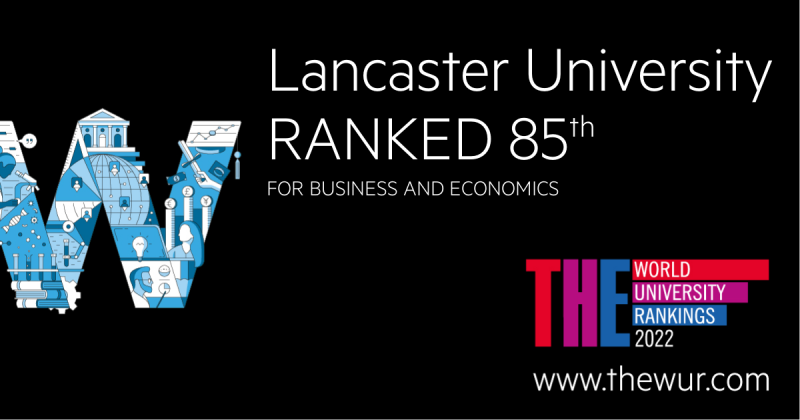Studying Economics and International Relations with us gives you the opportunity to learn from some of the foremost academics in the field.
We place strong emphasis on research and use it in the teaching of this course. Your degree is based on the politics that have shaped the modern world and you will learn issues such as war and governance and their impact on the global economy as well as the economics that inform the policies in the country. If you are interested in economies, how they are run and how they relate to other economies then this is the perfect course for you!
The study of economics and the study of politics and international relations are closely related. Within the international system, political and economic factors interact in many ways, and there are also important methodological links between the two disciplines. This blend is particularly useful because it prepares you for pursuing undergraduate degrees in numerous fields focused around economics and/or international relations.
Based on contemporary politics, this research intensive course provides you with the knowledge and skills that can be applied in real life situations. The combined degree explores the connection between economic and international political spheres, while providing an understanding of the main components of economics, namely economic theory; quantitative methods and economic history. It will develop your ability to analyse economic problems and evaluate the implications for economic policy through thorough understanding of the economic change process.
At Lancaster University Ghana, you will have the added advantage of attending guest lectures from practitioners in respected organisations to give you an overview of working in industry and guide you along your career path by giving career advice and answering any questions you may have.
Politics, Philosophy and Religion
Lancaster University Ghana
Economics and International Relations degrees emphasize critical thinking and analytical skills. Graduates are equipped with the ability to analyse complex economic and political issues, evaluate data, and make informed decisions. These skills are highly valued in various industries and can be applied to problem-solving and strategic decision-making in the workplace.
With a focus on international relations, this degree provides a comprehensive understanding of global politics, economics, and the interactions between nations. This knowledge is valuable for companies operating in international markets, government agencies, non-profit organizations, and businesses with global operations. Graduates are equipped with the ability to navigate the complexities of global business environments and understand the impact of international events on economic and political landscapes.
Economics and International Relations graduates have a strong foundation in policy analysis. They can assess the impact of economic and political policies on various stakeholders, evaluate potential outcomes, and propose solutions. This skill set is sought after in government agencies, think tanks and policy research organizations.
These degrees emphasize research skills, including collecting and analysing data, conducting literature reviews, and writing reports. These skills are valuable in many industries, including market research, consulting, and academia. Graduates can contribute to evidence-based decision-making, conduct economic and policy research, and provide insights into market trends and dynamics.
Economics and International Relations programmes often involve rigorous coursework in mathematics, statistics, and econometrics. These quantitative skills are highly sought after in many industries, including finance, data analysis, and market research.
An economics degree provides a solid foundation for further education, such as pursuing a master’s or doctoral degree in economics or related fields. This can lead to more specialized career opportunities and higher earning potential.
Economics graduates develop a range of transferable skills, including communication, problem-solving, data analysis, and research skills. These skills are applicable in various industries and can be valuable assets in the job market.

Economics and International Relations is a flexible, academically rigorous programme of study that prepares you from day one for a fulfilling, challenging career. There is a lot to take in and we would love you to get in touch to find out more, but if you take away anything from your visit today let it be these three things:

Lancaster is ranked 85th worldwide for Business and Economics in the Times Higher Education World University Rankings by subject 2022.
* Year 2 Options: Game Theory, Applied Economics, Economic Policy
For full details of the fees for this programme, and the University’s financial support packages including eligibility criteria, please click here.
Employability is one of the key objectives of this course and the modules prepares you (as well as gives you an edge) to be able to get employed with the necessary skills needed in the industry you plan to practice in. It also prepares you if you intend on continuing this subject as a professional course.
We combine the practical aspects of finance with the business environment – as a student here, you will have the added advantage of being able to engage with and use case studies from real firms to aid you in understanding and appreciating finance first hand.
Your skills acquired during this course will allow you to gain strong skills in time management, resource management, qualitative decision making and analytical thinking. These are the essential skills necessary for managers in any industry and/or company to make impactful and informative decisions which ultimately contribute to the success of the company.
Overall, an Economics and International Relations degree provides individuals with a strong foundation in economic and political analysis, consulting, global dynamics, and research skills. These skills are highly transferable and can lead to diverse and rewarding career opportunities.
Economists play a crucial role in shaping public policy decisions. With an economics and international relations degree, individuals can contribute to policy discussions and make a positive change in their society.
The objective of this course is to encourage you to think and rethink the political decisions that are taking place in our economy on a day to day basis.
